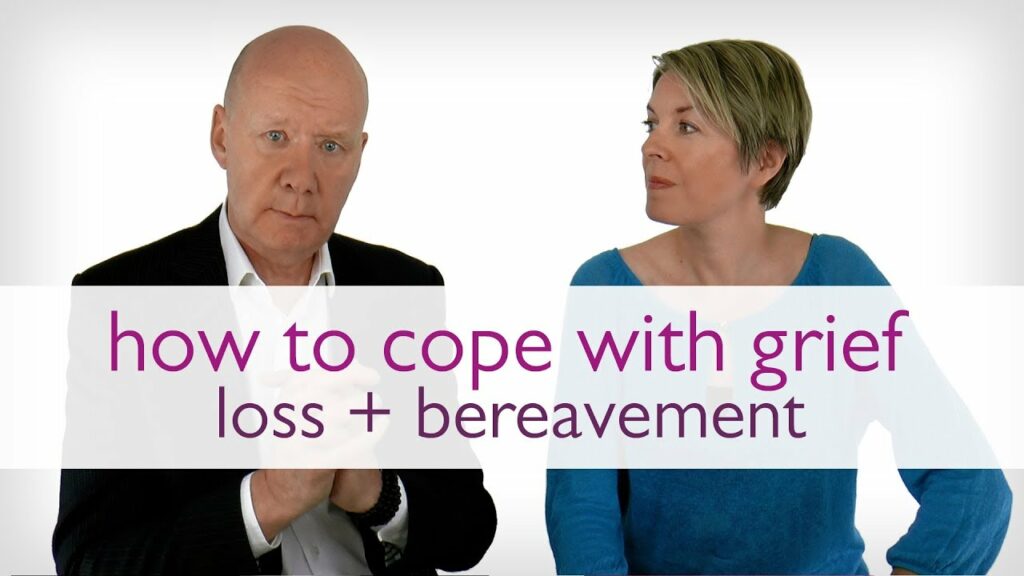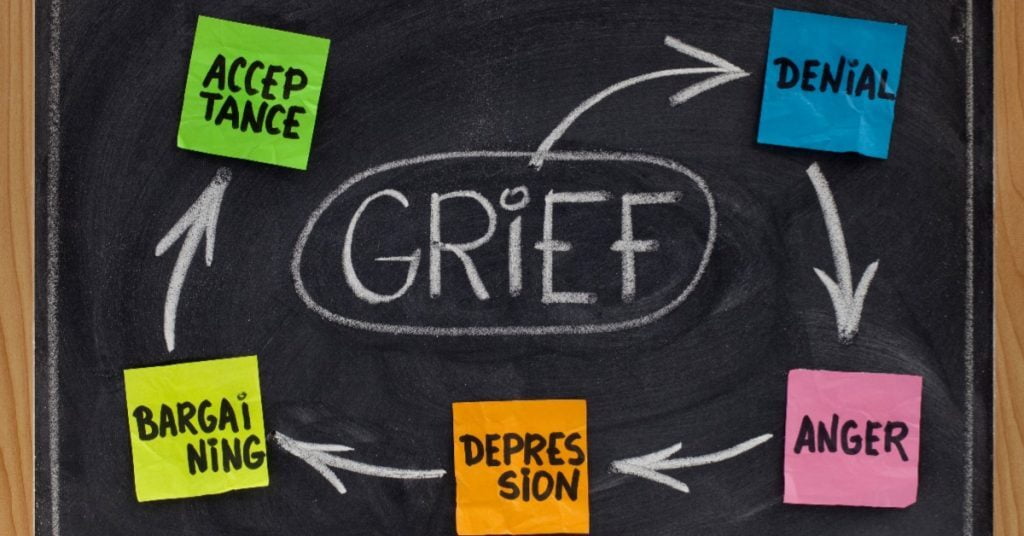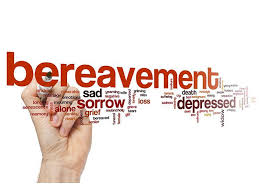Dealing with the death of a loved one is difficult for anyone, but it can be especially hard for children. It is important to take time to mourn and grieve if you are grieving the loss of someone close to you. This article will discuss bereavement, grief, and how to cope when dealing with grief that comes from losing a loved one.
Contents
What Is Grief?
Grief is a natural response to loss. It is the emotional pain we feel when something or someone we love is taken away. Grief can be caused by the death of a loved one, but it can also be caused by other losses, such as the end of a relationship, the loss of health, or the loss of a job.
Grief is a five-stage process. The five stages are denial, anger, bargaining, depression, and acceptance. Not everyone goes through all of these stages, and some people go through them in a different order.
Stages Of Grief
There is Total of Five Stages of grief, are as follows:
Denial Stage
The Denial Stage of Grief is the first stage. People in this phase often say that they are feeling numb or ‘in shock’, and may act as if their world has not changed at all. They will feel isolated from others because it seems easier than facing up to what has happened. It can also be difficult for family members or friends who have trouble relating to them when they do not appear to be upset by their loss.
Anger Stage
When people are in the second stage of grief, they might feel very angry. They might be mad at the person who died for leaving them or because it was unfair that they have to go through so much pain when they were never sick before.
On a physical level, the symptoms might be shaking, redness in the face and neck area, clenched fists, and stiffness in other muscles. One may also start shouting, using abusive language, and behaving violently towards others around them.
When we sleep, some feelings come out. Dreams often show our anger issues. We don’t usually allow ourselves to feel sad or let down when we are awake.
Bargaining Stage
The Bargaining Stage of Grief is the third stage. People in this phase are very emotional and often act impulsively but may also feel angry with themselves for feeling so weak even though they are working through their grief.
They will want to change what happened. They might ask for help from God or the person in charge of life on Earth to change what happened if they could come back to life.
It can manifest itself as finding reasons why it should have been somebody else instead of the person who died, asking God questions like ‘Why not me?’ or saying prayers where one tries to find ways of making promises in return for restoring someone’s health.
Depression Stage
The Depression Stage of Grief is the fourth stage. People in this phase often feel that they have reached a dead-end. They may see no point in carrying on with anything and can be extremely pessimistic about the future, feeling that their loved one’s death was for nothing.
Some people feel lonely when other people are around because they don’t know what to say to them. It can be hard for other people to tell if a person is feeling sad or just tired. When a person feels this way, they might have trouble sleeping and it may be hard for them to eat too much food.
Acceptance Stage
The fifth stage of Grief is the Acceptance Stage. People who are in this phase of grief and bereavement do not feel better than they did while grieving, but they know that what has happened cannot be changed. They may not know why it has happened right now, but there might have been a reason for it.
They can be very philosophical about life, seeing death as a part of life rather than an enemy without which nothing would ever have been achieved or appreciated by anybody because nobody could truly appreciate anything until it had gone away from them for good.
What Is Bereavement?
Bereavement is the process of grieving following a death. It can be very difficult to cope with and there is no right or wrong way to do it. Some people may go through all five stages while others only experience a couple, or skip one altogether.
There are also no set time limits on how long it should take somebody to get over their bereavement. For some, the pain may lessen over time but for others, it may never fully disappear.
How to Live With Major Loss?

Here are some tips for dealing with grief:
- Allow yourself to feel sad. Don’t try to suppress your feelings or pretend that you’re not grieving. It’s normal to feel overwhelmed by sadness and despair. Give yourself permission to mourn the loss of your loved one.
- Talk about your loss. Sharing your thoughts and feelings with others can help you process them and come to terms with your loss. Talk to friends, family members, or a therapist.
- Seek support from others. Join a bereavement group or talk to other people who are grieving. The support of others can be invaluable during this difficult time.
- Take care of yourself. Make sure you’re getting enough rest and eating healthy foods. Exercise may also help improve your mood.
- Honor the memory of your loved one. Keep photos and mementos of your loved ones around to help you remember them fondly. Participate in activities that were important to them or that they enjoyed. This can provide comfort during your time of grief and bereavement.
- Give yourself time to heal. Grieving is a process that takes time. Don’t expect to heal overnight. Be patient and allow yourself to mourn in your own way and at your own pace.
- It is hard losing a loved one, especially if it was sudden or unexpected. You may feel like you’re not going to make it through the day, let alone the rest of your life. But with time, patience, and support, you can get through this difficult period.
- The most important thing is to give yourself permission to grieve and mourn in your own way. And don’t be afraid to ask for help from family members or friends. They want to help you – let them.
How To Help Others With Grief and Bereavement?
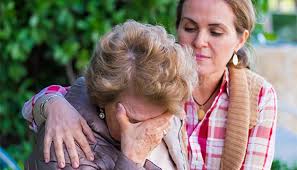
- Losing a loved one is difficult for everyone involved. Sometimes, even those closest to the bereaved can have trouble helping during this time of grief and loss. But there are ways you can help someone who has lost a loved one:
- Listen to your friend. Do not judge them and say things like “You will get over it” or “It’s not that big of a deal.” Remember that people grieve in different ways and what has helped you may not be the right thing for someone else. Just listen and let them talk, without trying to solve anything for them.
- Remind them that although the person will never come back, they are still with them in spirit. One of the hardest things about grief and bereavement is that the person is gone and you can’t talk to them or see them anymore. But it can be helpful to remember that they are still with you – in your heart and mind.
- Acknowledge their pain, Don’t try to tell them how to feel or act. Acknowledging that they are grieving and in pain is an important step in helping them through this process.
- Don’t forget about them, Grief can be all-consuming, so it’s easy for the bereaved to feel like they’re being forgotten by those who are still alive. Check in on your friend or family member regularly, even if it’s just a quick text or call. Let them know you’re thinking of them and that they’re not alone.
- Grief is a process that takes time. Don’t expect your loved one to heal overnight. Just be there for them, offer support, and let them know you care.
How To Help Children With Grief And Bereavement?
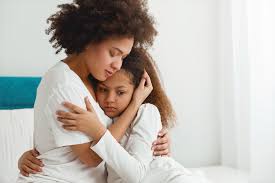
Many people don’t know that children can grieve just as much as adults. When a loved one dies, even if they’re very young or still in the womb, it is important for them to understand what has happened and why. This will help their grieving process.
There are many ways you can help your child cope with grief and bereavement:
- Allow them to express themselves Children often have trouble verbalizing how they feel about losing someone close to them, so give them time and space to show how they feel instead of telling them what emotion is appropriate at any given moment.
- Encourage activities only related to the person who died. This may be difficult or impossible, but you can try. Telling stories about good times, watching videos, or looking at pictures are all great ways to help children cope with loss.
- Give them time Kids tend to grieve in cycles – one day they may be fine and the next they’re sad again. Everyone’s grieving process is different so don’t try to push your child into feeling a certain way just for comfort’s sake. Let them go through their stages of grief without rushing it along so you can move on more quickly as well.
- Be there for them Children often feel anger about losing someone close to them too, especially if death was unexpected or sudden, but many adults have trouble being open about these feelings because “it isn’t appropriate”. Don’t let this happen! Be honest when talking with kids and remember that they’re processing things in their own way and at their own pace.
- Encourage them to remember the good times Children often have trouble understanding why this had to happen, so help them focus on happy memories of the person who died. This will help remind them that although they are no longer alive, they still matter a lot to those around them.
Conclusion
Grief is a natural, but difficult process that most people will experience at some point in their lives. In this article, we discussed the stages of grief and how to cope with them when they arise. We hope you’ve learned something new about grieving today, and if you have any questions or need help coping please reach out.
For more information, please contact MantraCare. Grief is a natural and complex emotional response to loss or change. If you have any queries regarding Online Grief Counseling experienced therapists at MantraCare can help: Book a trial therapy session
